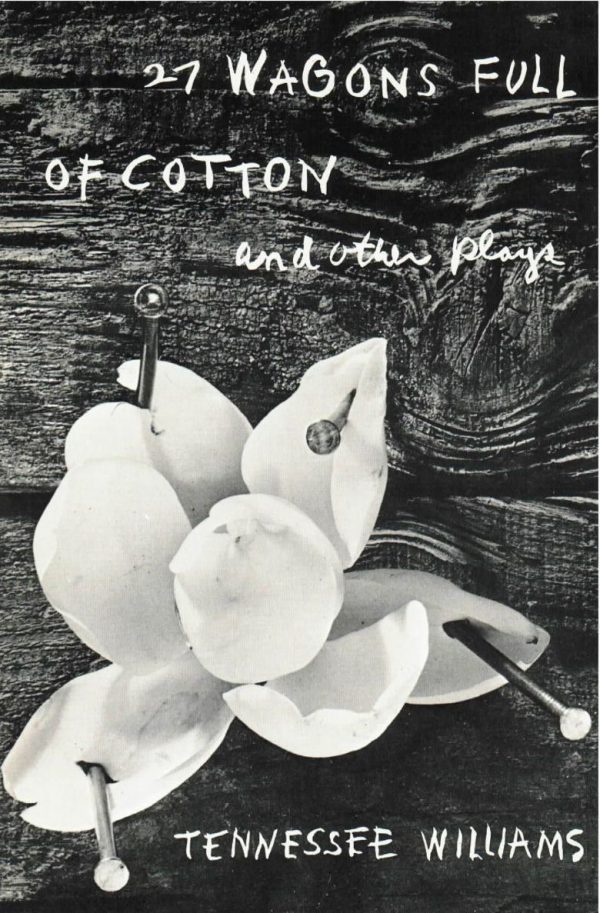
27 Wagons Full of Cotton And Other One-Act Plays
By Tennessee Williams
This compelling collection of one-act plays showcases Tennessee’s mastery of poetic storytelling through thirteen unforgettable snapshots of American life. These one-acts—ranging from the haunting, slow-burn tension of 27 Wagons Full of Cotton to the aching loneliness of The Lady of Larkspur Lotion—distill raw emotion and complex characters into brief, powerful encounters.
Whether portraying drifters, dreamers, or the quietly desperate, Williams brings a lyrical sensitivity and psychological depth to each play. Unified by a deep compassion for flawed humanity and a yearning for a more tender world, this collection captures the tragedy, resilience, and fragile beauty of everyday life. With an introductory essay by Williams, “Something wild...”, that offers a compelling reflection on the value of small theater and the enduring power of intimate storytelling.
Year: 1966
Format: Paperback
Publisher: New Directions
Categories: American Dramas & Plays, Sociology, and Social Sciences
Pages: 238
- $ 450.00
- $ 450.00
- Unit price
- per
Also recommended
- $ 450.00
- $ 450.00
- Unit price
- per
- $ 450.00
- $ 450.00
- Unit price
- per
- $ 450.00
- $ 450.00
- Unit price
- per
- $ 450.00
- $ 450.00
- Unit price
- per
- $ 450.00
- $ 450.00
- Unit price
- per
- $ 450.00
- $ 450.00
- Unit price
- per
- $ 450.00
- $ 450.00
- Unit price
- per
- $ 450.00
- $ 450.00
- Unit price
- per
- $ 450.00
- $ 450.00
- Unit price
- per
- $ 450.00
- $ 450.00
- Unit price
- per
Recently Viewed
- $ 450.00
- $ 450.00
- Unit price
- per
- $ 450.00
- $ 450.00
- Unit price
- per
- $ 450.00
- $ 450.00
- Unit price
- per
- $ 450.00
- $ 450.00
- Unit price
- per
- $ 450.00
- $ 450.00
- Unit price
- per
- $ 450.00
- $ 450.00
- Unit price
- per
- $ 450.00
- $ 450.00
- Unit price
- per
- $ 450.00
- $ 450.00
- Unit price
- per
- $ 450.00
- $ 450.00
- Unit price
- per
- $ 450.00
- $ 450.00
- Unit price
- per
- Choosing a selection results in a full page refresh.
